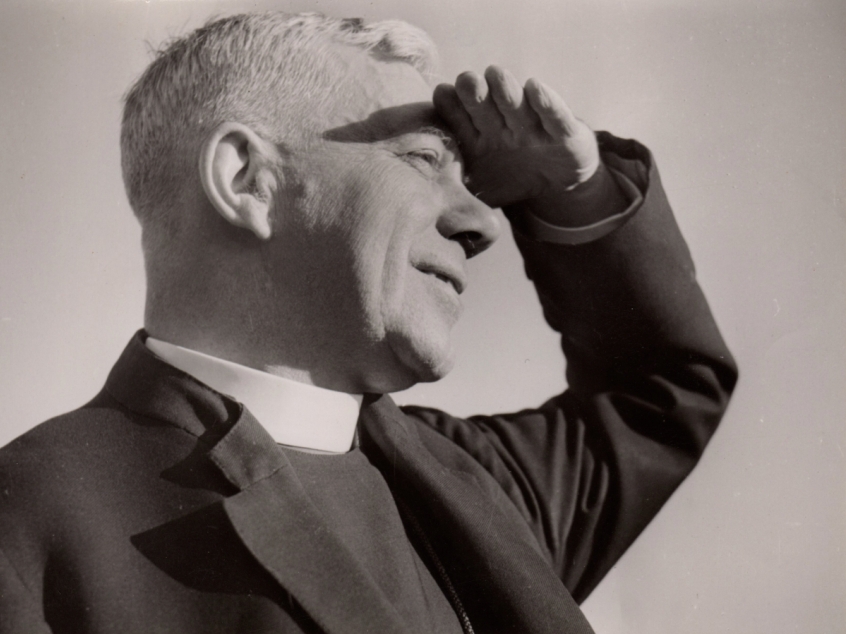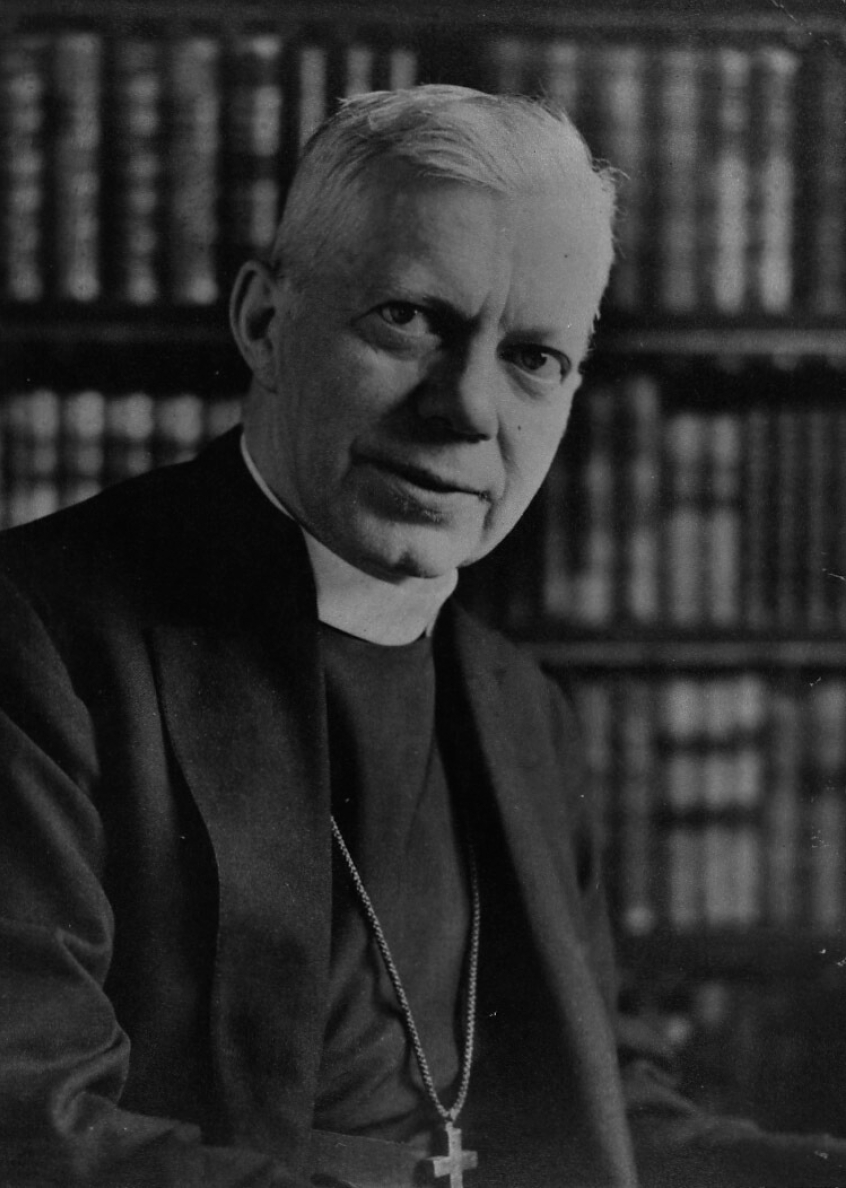The Church of England 'rushed to judgment' and smeared one of its most revered figures in its desperation to avoid being seen as soft on clergy sex abuse, a daming review today reveals.
George Bell, the former Bishop of Chichester, was respected in the CofE and was a highly respected leader known for his opposition to the indiscriminate Allied bombing of German cities in the Second World War and support for German refugees.
But he was branded a paedophile almost 60 years after his death in 2015 on the basis of one claimant's unverified evidence, a highly critical report into the Church's botched handling of the case found.

The Church's investigation was weak and failed to find easily available evidence that Lord Carlile QC's review found straight away.
'As a result it was concluded all too easily that Carol [the name by which his accuser is known] was telling the truth and Bishop Bell was responsible for serious abuse,' Lord Carlile told journalists as the report was published at the CofE's headquarters in Westminster.
'The reputation of Bishop Bell was wrongly and unnecessarily damaged severely by public statements by the Church, which should not have been made.'
The report says: 'Absolutely nothing was done to ensure that his living relatives were informed of the allegations, let alone asked for or offered guidance. Nor were any steps taken to ensure that Bishop Bell's interests were considered actively by an individual nominated for the purpose.
'I regret that Bishop Bell's reputation, and the need for a rigorous factual analysis of the case against him, were swept up in a tide focused on settling Carol's civil claim and the perceived imperative of public transparency.'
The Church 'failed to follow a process that was fair and equitable to both sides', the report finds, and was 'deficient in a number of respects'.
Bishops anxious to avoid being accused of tolerating or colluding in child abuse 'rushed' to apologise publicly without properly investigating the facts, the investigation by Lord Carlile QC says.
Officials 'oversteered' in their 'understandable' concern not to repeat the mistakes of the past where the Church had failed to recognise and deal with clergy abuse.
The complainant, known only as 'Carol', was handed more than £30,000 in damages and legal costs and a statement was made that besmirched Bishop Bell's reputation. It led to a Sussex school named after the former Bishop of Chichester hastening to change its name, another school's boarding house being renamed and a statue of Bishop Bell in Chichester cathedral being adorned with a sign warning of his involvement in abuse.
The review was set up after the George Bell Group was formed in support of the late bishop and launched a campaign against the Church's handling of the case.
Now, two years after the initial apology was handed out, Lord Carlile's review says the settlement and apology should have been private to avoid tarnishing Bishop Bell's reputation on the basis of uncorroborated evidence.
'Where as in this case the settlement is without admission of liability, the settlement generally should be with a confidentiality provision: there should be a presumption that the name of the alleged perpetrator should not be published,' Lord Carlile recommended.

However the Archbishop of Canterbury disagreed with the recommendation and said 'the Church is committed to transparency therefore we would take a different approach'.
He insisted: 'The decision to publish his name was taken with immense reluctance, and all involved recognised the deep tragedy involved.' But Welby stopped short of apologising to Bishop Bell's family.
The CofE's lead on safeguarding, Bishop Peter Hancock, also disputed Lord Carlile's conclusion and said the Church 'would seek to avoid confidentiality clauses'.
Bishop Hancock admitted 'processes were deficient in a number of respects, in particular the process for seeking to establish what may have happened. For that we apologise. Lessons can and have been learnt about how we could have managed the process better.'
He apologised to Bishop Bell's relatives for the pain the Church's mishandling of the case as well as to Carol.
'The Church has always affirmed and treasured Bishop Bell's principled stand in the Second World War and his contribution to peace remains extraordinary. At same time, we have a duty and commitment to listen to those reporting abuse, to guard their confidentiality, and to protect their interests.
'We recognise that Carol has suffered pain, as have surviving relatives of Bishop Bell. We are sorry that the Church has added to that pain through its handling of this case.'













